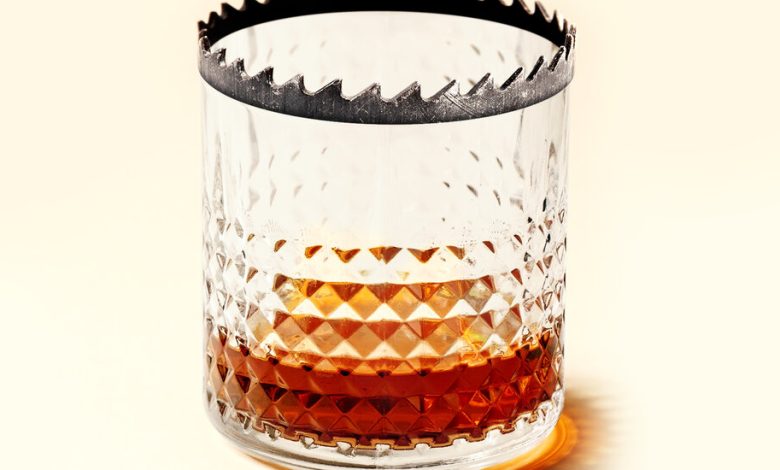Is That Drink Worth It to You?

About a year ago, a friend of mine started evading my invitations to grab a drink. It was only when we caught up for a walk that she explained she wasn’t putting me off for any personal reason — it was just that she had stopped drinking. She wasn’t a heavy drinker — she had a glass of wine with dinner, the occasional Aperol spritz — but she’d been hearing on podcasts and reading in the news that even a small amount of alcohol was much worse for her health than had previously been understood.
Listen to this article, read by Kirsten Potter
My friend was picking up on a swing in the public-health messaging around alcohol. For many years, she might have felt that she was making a healthy choice in having a glass of wine or a beer with dinner. Right around the time when she came of legal age to drink, the early 1990s, some prominent researchers were promoting, and the media helped popularize, the idea that moderate drinking — for women, a drink a night; for men, two — was linked to greater longevity. The cause of that association was not clear, but red wine, researchers theorized, might have anti-inflammatory properties that extended life and protected cardiovascular health. Major health organizations and some doctors always warned that alcohol consumption was linked to higher cancer risk, but the dominant message moderate drinkers heard was one of not just reassurance but encouragement.
More recently, though, research has piled up debunking the idea that moderate drinking is good for you. Last year, a major meta-analysis that re-examined 107 studies over 40 years came to the conclusion that no amount of alcohol improves health; and in 2022, a well-designed study found that consuming even a small amount brought some risk to heart health. That same year, Nature published research stating that consuming as little as one or two drinks a day (even less for women) was associated with shrinkage in the brain — a phenomenon normally associated with aging.
Drinking increased during the pandemic, which may be why news of any kind about alcohol seems to have found a receptive audience in recent years. In 2022, an episode of the podcast “Huberman Lab” that was devoted to elaborating alcohol’s various risks to body and brain was one of the show’s most popular of that year. Nonalcoholic spirits have gained such traction that they’ve started forming the basis for entire nightlife guides; and more people are now reporting that they consume cannabis than alcohol on a daily basis.
Some governments are responding to the new research by overhauling their messaging. Last year, Ireland became the first country to pass legislation requiring a cancer warning on all alcohol products sold there, similar to those found on cigarettes: “There is a direct link between alcohol and fatal cancers,” the language will read. And in Canada, the government has revised its alcohol guidelines, announcing: “We now know that even a small amount of alcohol can be damaging to health.” The guidelines characterize one to two drinks a week as carrying “low risk” and three to six drinks as carrying “moderate risk.” (Previously the guidelines suggested that women limit themselves to no more than two standard drinks most days, and that men place that limit at three.)